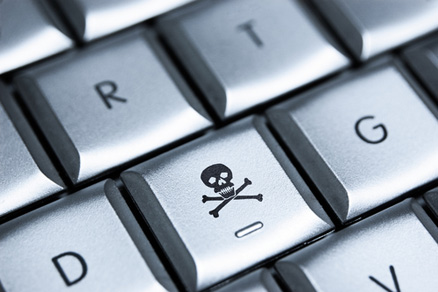 NEWS
NEWS
 NEWS
NEWS
 NEWS
NEWS
![]() Just days after it was revealed that Google is talking to major online payment processors like PayPal and MasterCard with a view to cutting off payments to “illegal” websites that host copyrighted material, a music industry body has slammed the internet company for failing to deliver on its promise to start downgrading said websites’ search engine rankings.
Just days after it was revealed that Google is talking to major online payment processors like PayPal and MasterCard with a view to cutting off payments to “illegal” websites that host copyrighted material, a music industry body has slammed the internet company for failing to deliver on its promise to start downgrading said websites’ search engine rankings.
Six months ago, Google made a grand announcement that it would be taking steps to demote certain website that had been accused of hosting illegally pirated material. In a blog post last August, Google’s Amit Singhal wrote that the search engine company was planning to change its algorithm to, helping “users to find legitimate, quality sources of content more easily”.
That statement was warmly welcomed by the Recording Industry Association of America (RIAA) at the time – one of many trade groups in the entertainment sector to applaud Google’s stance. But a report issued by the RIAA this morning shows that in six months little has changed, with major ‘cyberlockers’ such as 4shared, Audiko, BeeMP3, Downloads.nl, MP3Chief, and Zippyshare still dominating Google’s search engine rankings. Clearly, whatever Google did – if it did anything at all – hasn’t worked.
According to the RIAA:
“We have found no evidence that Google’s policy has had a demonstrable impact on demoting sites with large amounts of piracy. These sites consistently appear at the top of Google’s search results for popular songs or artists.”
The RIAA’s report describes how it tracked websites labelled “serial infringers” on Google’s Copyright Transparency Report – sites which have received numerous takedown notices for hosting pirated content. But despite being known to Google, these same sites continue to consistently rank in the top ten of Google’s search results more than “98% of the time”, says the report.
A top ten ranking is extremely important for any website, because the vast majority of users (like 94%) never go beyond the first page of results – hence the music and film industry’s desire to have such sites demoted. During its analysis, the RIAA carried out typical searches for songs that appeared in the Billboard Hot 100 last year, finding that the vast majority of results came back with links to sites hosting copyrighted material:
The report continues:
“Well-known, authorized download sites, such as iTunes, Amazon and eMusic, only appeared in the top ten results for a little more than half of the searches. This means that a site for which Google has received thousands of copyright removal requests was almost 8 times more likely to show up in a search result than an authorized music download site… In other words, whatever Google has done to its search algorithms to change the ranking of infringing sites, it doesn’t appear to be working.”
![]()
Is Google Doing Enough?
The report will do little to dissuade those who believe that Google is lax about the whole anti-piracy fight. Record labels and movie producers have urged Google to take a much tougher stance against cyberlockers for years, begging them to change their search algorithm and cut off funding from its ad program, which is used by many illegal sites.
So is Google being honest in its efforts to fight piracy online? It’s an interesting question, because on the one hand the RIAA’s report confirms that it has done virtually nothing to stop such websites from ranking high on Google Search – something that would appear to be the most obvious step to take if it was genuinely interested in getting copyrighted content off the web. My question then, is why hasn’t Google changed its algorithms (despite saying it would)? It could easily delist such websites if it wanted to – just ask any SEO who’s been discovered using “black hat” tricks what happened to their site’s ranking.
But despite this, Google has repeatedly declared that it sympathizes with copyright owners and wants to help them. We should remember that legally, Google is under no obligation to help copyright owners, yet it has taken certain steps before to do so, such as when it introduced its Content ID system on YouTube to filter pirated videos, and last week’s push to starve cyberlockers of cash.
YouTube is actually a big reason for Google to want to fight piracy. By doing so, it helps keep its video site supplied with all the latest TV shows, movies and songs from its content partners – and this kind of digital entertainment has become crucially important to Google in recent years with the growth of smartphones and mobile devices.
It’s hard to know if Google is serious about its piracy crusade or not. We should bear in mind that Google never made any promises that the algorithm changes it announced six months ago would have the desired effect:
“Sites with high numbers of removal notices may appear lower in our results. This ranking change should help users find legitimate, quality sources of content more easily,” wrote Singhal at the time.
THANK YOU